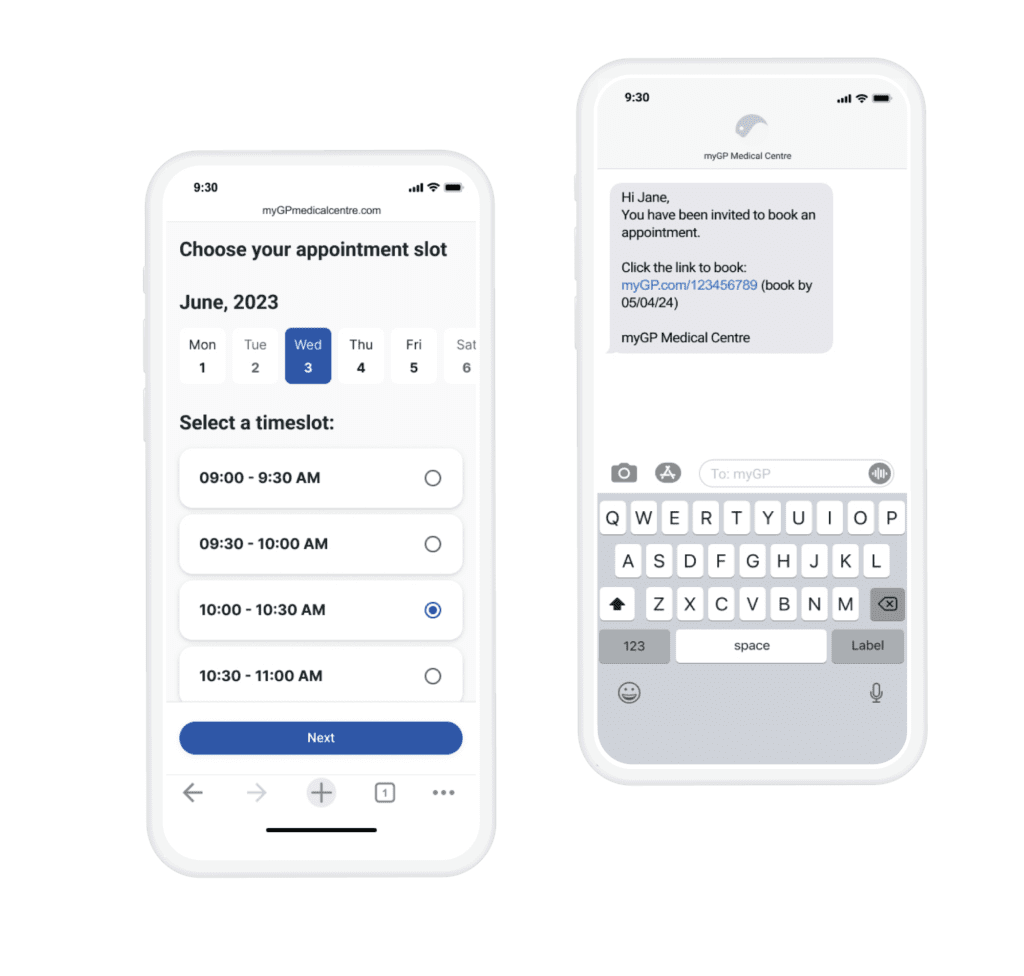In the evolving landscape of healthcare, it’s crucial to stay at the forefront of technology to ensure we’re providing the best possible service to both practices and patients. That’s why I’m delighted to welcome the launch of iPLATO’s Selfbook service, a significant step forward in streamlining healthcare appointments and enhancing patient engagement.
What’s new?
The transition from what was known as Call/Recall to iPLATO Selfbook is more than just a change of name. It’s a shift towards a more inclusive and expansive understanding of how self booking functionality can transform the healthcare experience for patients across the UK.
Selfbook encompasses a wide range of use cases beyond the traditional Call/Recall system. This includes 1-to-1 messaging, the Engagement Hub, Triage, and Patient Questionnaires – all aimed at making healthcare more accessible and personalised.
How will Selfbook benefit practices?
1. Increased patient involvement
Selfbook enables practices to send a <selfbooklink> web-link to multiple patients in a bulk SMS campaign, allowing them to choose from available appointment dates and times at their convenience. This web-based booking system shows how we’re putting patient choice at the centre of digital adoption . Once a booking is made, confirmation messages are sent out, and patients have the flexibility to cancel and rebook using the same web link, ensuring a seamless experience.
2. Increased control over appointments
Most importantly, the Selfbook appointments can be made available only for those who are invited. This means an end to patients with coughs and colds booking themselves into vaccination appointment slots, for example. Practices can even use appointment slots that are not available online for general patient bookings, such as specific nurse-led clinics for long-term condition reviews.
3. Data capture before the appointment
The integration of a Patient Questionnaire at the beginning of the Selfbook patient flow captures essential data before the appointment. This not only enables the practitioner to be well-prepared for the consultation but also streamlines the process by removing the need to gather this patient data during the consultation itself. As a result, practitioners can dedicate more time to focusing on the patient’s needs and concerns.
The implementation of Selfbook also highlights our commitment to improving practice workflows. The updated Selfbook campaign builder is more intuitive, with clear instructions and a display of the number of available slots. This, combined with the ‘Patient friendly appointment name’, aligns perfectly with our unique selling proposition, enhancing both the myGP app and Selfbook via the web.
Another noteworthy feature of Selfbook is its integration with the NHS App, offering appointment reminders and enabling keyword replies for an effortless response system. This integration signifies a broader acceptance and adoption of digital solutions within the NHS, a move that iPLATO fully supports and is proud to be part of. At iPLATO, we understand that healthcare providers operate in a dynamic environment, which is why Selfbook has been designed with flexibility in mind. Practices can now enable or disable NHS App keyword replies, ensuring that the system fits seamlessly into their existing processes.
iPLATO is dedicated to exploring new ways to enhance our services and support the healthcare industry in delivering positive patient experiences. I look forward to seeing the positive impact Selfbook will have on practices and patients alike.


